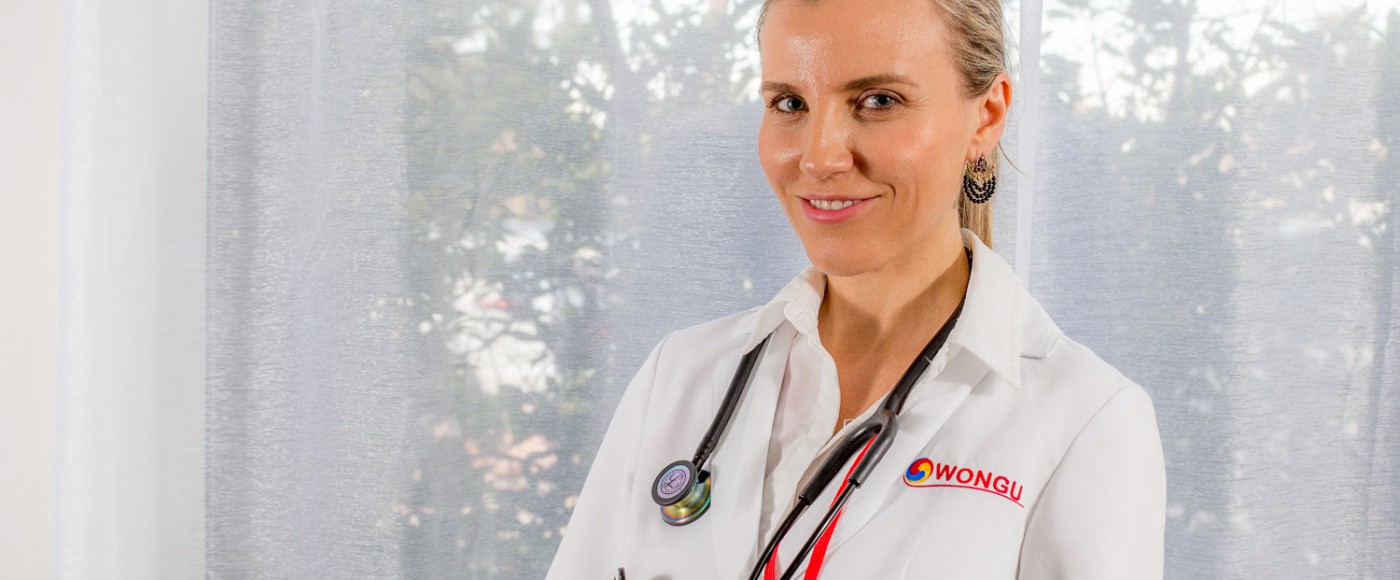CLINIC INTERNSHIP
CLINIC INTERNSHIP
Level I: CP411-414; 320 hours
Level II: CP511-514; 320 hours
Level III: CP611-612; 160 hours
After completing the clinical observation component of the clinical training, students must pass a written and practical pre-clinical examination before beginning their internship. The emphasis of the clinical training is on developing the skills and confidence of each intern to become competent and compassionate practitioners of Oriental medicine. During clinic internship, interns demonstrate and practice the necessary skills including internal personal skills through direct patient care.
The structure of supervision of treatment is based upon progressive levels of intern responsibility.
During Level I, the first stage of clinical education, interns begin hands-non patient care under a direct and constant supervision of a supervisor. The intern follows the clinical faculty’s diagnosis, treatment plan and treatment method. Supervisors closely monitor each intern’s ability to conduct a patient history and intake, formulate a diagnosis and treatment plan, and deliver appropriate care. Emphasis is placed on the development of general diagnostic strategies and treatment competencies, including needling, moxibustion, guasha, e-stim, as well as herbal formulation, while relying heavily on supervisor input.
As interns progress to Level II, greater responsibility is gradually shifted to the intern to perform all aspects of patient care including formulation of herbal prescriptions. the intern formulates diagnoses, treatment plans, and treatment methods with the assistance of clinical faculty. Throughout this process, supervisors are required to see each patient and to make or confirm each diagnosis and treatment plan. Patient’s charts are signed by the supervisor after the intern has completed recording the diagnosis and treatment. Attention to charting ensures that each supervisor and intern communicate clearly in diagnosis and treatment of each patient.
During Level III, the highest level of internship training, and the interns at this level are afford the most degree of responsibility by supervisors. Interns master their skills in diagnosis, developing treatment plans to include all OM modalities, including modification of acupuncture and herb formulas. Interns have the highest degrees of freedom in diagnosis and treatment and supervision is mainly for the approval of diagnostic accuracy and safety. This process builds an intern’s ability and confidence and successfully provides him or her with the necessary skills and support to make independent clinical judgments
CP411 Intern Level 1A 4 Units/80 Hours
Prerequisites: CP313; Passage of Institutional Exam I. BLS for healthcare provider certification, CNT certification.
Practical experiences in the clinic, at progressive levels of responsibility, under the supervision of clinic faculty. The intern follows the clinical faculty’s diagnosis, treatment plan and treatment method. Supervisors closely monitor each intern’s ability to conduct a patient history and intake, formulate a diagnosis and treatment plan, and deliver appropriate care. Clinical training at this level emphasizes interviewing patients, proper examination, developing diagnosis and treatment plans, point location, needling technique, and the preparation of herbal prescriptions. Emphasis is placed on building confidence and accuracy with regards to diagnosis, point location and needle technique.
CP412 Intern Level 1B 4 Units/80 Hours
Prerequisites: CP411 or co-requisite
A continuation of CP411.
CP413 Intern Level 1C 4 Units/80 Hours
Prerequisites: CP412 or co-requisite
A continuation of CP412
CP414 Intern Level 1D 4 Units/80 Hours
Prerequisites: CP413 or co-requisite
A continuation of CP413.
CP511 Intern Level 2A 4 Units/80 Hours
Prerequisites: CP414; Passage of Institutional Exam II.
Practical experiences in the clinic, at progressive levels of responsibility, under the supervision of clinic faculty. In Level II, interns assume responsibility for monitoring their patients’ progress, developing and modifying treatment plans, including formulation of herbal prescriptions. Interns formulate diagnoses, treatment plans, and treatment methods with the assistance of clinical faculty. Throughout this process, supervisors are required to see each patient and to make or confirm each diagnosis and treatment plan. Patient’s charts are signed by the supervisor after the intern has completed recording the diagnosis and treatment. Attention to charting ensures that each supervisor and intern communicate clearly in diagnosis and treatment of each patient.
CP512 Intern Level 2B 4 Units/80 Hours
Prerequisites: CP511 or co-requisite
A continuation of CP511.
CP513 Intern Level 2C 4 Units/80 Hours
Prerequisites: CP512 or co-requisite
Practical experiences in the clinic, at progressive levels of responsibility, under the supervision of clinic faculty.
CP514 Intern Level 2D 4 Units/80 Hours
Prerequisites: CP513 or co-requisite
A continuation of CP513.
CP611 Intern Level 3A 4 Units/80 Hours
Prerequisites: CP514; Passage of Institutional Exam III.
In this advanced stage of clinical education, interns continue hands-on patient care. Interns function semi-independently with the most degree of responsibility by supervisors. Interns master their skills in diagnosis, developing treatment plans to include all Oriental Medicine modalities, including modification of acupuncture and herb formulas. Supervision at this level is mainly for the approval of diagnostic accuracy and safety.
CP612 Intern Level 3B 4 Units/80 Hours
Prerequisites: CP611 or co-requisite
A continuation of CP611.
